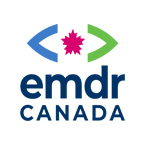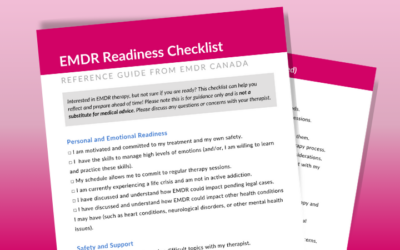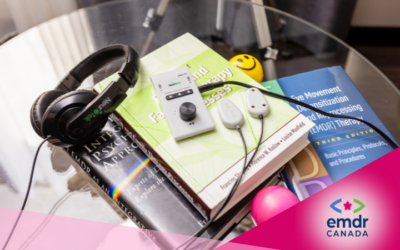
All Articles and Resources from EMDR Canada
Before you Begin: Six Essential Conversations to Have Before Starting EMDR (and Downloadable Readiness Checklist)
It's no secret that EMDR therapy, while often hlghly effective, can be an intense experience. Preparation can make a big difference in successful outcomes for EMDR clients—that's why EMDR therapists go through three phases (History & Treatment Planning,...
Can EMDR Help with Complex Trauma?
EMDR therapy is a well-researched treatment that has had highly successful outcomes for many people with post-traumatic stress disorder (PTSD) and several other mental health conditions. But can EMDR also help people with complex post-traumatic stress disorder...
EMDR and Acquired Brain Injury: Interview with Neuropsychologist Colette Smart
Clinical neuropsychologist Dr. Colette Smart, an Associate Professor of Psychology at the University of Victoria in British Columbia, has been working with people with cognitive impairments for twenty years. Her emerging research into EMDR’s efficacy for people with...
Revolutionizing EMDR Therapy: An Interview with David Archer MSW, MFT
“Raising our racial consciousness allows people of all cultural backgrounds to be more fully equipped to stop the trauma of racism. Let us have courage, be open-minded, and move toward a better future.” These are among the opening words in David Archer’s book,...
Beyond PTSD: Studies show EMDR can treat these conditions
This Teaser text goes here and it looks something like this but will be the real text for the news posting that this is all about. It will be interesting and people will read it
Can I do EMDR without eye movement?
Despite the name “Eye Movement Desensitization and Reprocessing” therapy, eye movement is not a necessary part of EMDR. Tactile and auditory stimulation are also well-researched and proven options, making EMDR therapy more accessible to people with varying needs,...






